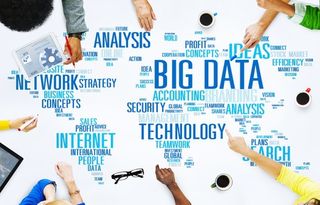The term ‘big data’ is becoming increasingly prevalent. No doubt you have come across it. But what exactly is it – what does it mean?
I did a Google search to find out. The first non-advertised result I saw was just a definition. It read, “Extremely large data sets that can be analysed computationally to reveal patterns, trends and associations, especially relating to human behaviour and interactions.” That seemed straightforward enough, but – after the ubiquitous Wikipedia link – the third result was a link to a Forbes article, “12 Big Data Definitions: What’s Yours?” This suggests that it is perhaps not so simple after all. Also, that it is apparently subjective.
Fortunately, the simple definition is enough for this discussion and we don’t need to get embroiled in any complexity. It highlights two things that warrant deeper thought.
The first is that the analysis is handled “computationally.” This, unsurprisingly, means it is driven by computers and would not be feasible without the technological advances of the age. There is nothing inherently wrong in that, we would be daft not take full advantage of our capabilities. We do, however, need to beware about creating and using data simply because we can.
The fact is that data only becomes information when it is interpreted and used. That requires people. Thus it follows logically that more data needs more people, not less. Even if technology makes that logic redundant, the ultimate objective of technology is to make our (human) lives better, and that demands human interaction. So more data means greater demands on people and thus, potentially, greater stress.
Now it may well be that one of the major reasons that employee engagement is such a significant challenge today, is that increasing computerisation and the proliferation of data is removing some of the sense of achievement and hence the feeling of contribution and thus the self-worth of employees. This, combined with more measures for assessing performance arguably means that people already are – or feel – over-managed. Big data risks compounding this.
The second is that it pertains “especially” to human behaviour. I suspect this claim may be open to challenge, but it nevertheless raises issues, not least for the reasons already stated. Big data provides the capability for monitoring employee behaviour more closely, but interpreting data inevitably means classifying, categorising and labelling. This results in homogenisation and – as we all know – people cannot be homogenised.
Thus we need to proceed with caution. Whatever data our computers generate, the determination of requirements, and the uses to which it is put, are all shaped by humans. This demands great insight, sensitivity and balance if it is to be put to effective use. Thus you need ‘big’ people if you are going to optimise your big data.
_____________________________________________________________________________
Contact me today for a free 30 minute conversation about how my ‘Every Individual Matters’ model can help you create an organisational culture that embraces change and transforms – and sustains – organisational performance.
_____________________________________________________________________________
Bay is the founder and director of Zealise, and the creator of the ‘Every Individual Matters’ organisational culture model that helps transform organisational performance and bottom-line results. Bay is also the author of several books, including “Lean Organisations Need FAT People” and “The 7 Deadly Toxins of Employee Engagement.”

